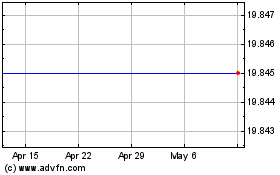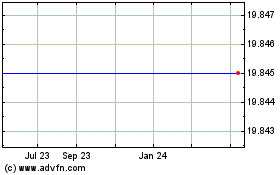By Sarah E. Needleman
When making "Star Wars: Galaxy of Heroes," Electronic Arts Inc.
knew it wasn't enough to have a mobile videogame that featured some
of the most popular movie characters of all time. To succeed, it
had to get players to open the app every day.
Developers crafted a lengthy checklist of tasks -- train a
character, equip special gear, battle other players -- that dole
out digital currency and other rewards when completed each day.
Players can use that loot to boost their characters' fighting
prowess, giving them a crucial edge against competitors.
The strategy worked. A little more than a year since launch, EA
says users play an average 2.5 hours a day, putting "Galaxy of
Heroes" among its most popular mobile games. It ranks among the top
25 revenue-generating apps on the Apple Inc. and Alphabet Inc. U.S.
app stores.
Daily rewards have emerged as the indispensable tool for hooking
players in a field of more than a million game apps. The stakes are
high: Mobile games are on track this year to become the biggest
slice of the nearly $100 billion videogame industry.
Extracting as much time as possible out of users is critical
because games like "Galaxy of Heroes" make money selling virtual
goods. The more people play, the more likely they will spend.
Companies have myriad ways to encourage routine use, such as a
monthly calendar that tracks a player's progress or weeklong side
missions with extra-valuable rewards. The latest mobile-game hit,
"Super Mario Run," rewards players for competing daily against
friends.
Ingraining a game into a person's daily routine is key, since
that increases the chances a player will become a coveted spender,
said Dr. Rachel Kowert, a research psychologist in Austin, Texas.
"People are genuinely goal-driven and games are just providing
goals to achieve," she said.
Developers began experimenting with daily rewards around 2012,
when mobile games evolved from mostly paid to free. The tool is
gaining traction as the cost to acquire a new user grows -- it cost
an average of $6.62 in the U.S. last year across about a half dozen
major advertising platforms, compared with $3.87 in 2015 and $1.98
in 2014, according to a mobile-marketing firm Fiksu DSP.
This year, 18 out of the top 25 most downloaded games in the
U.S. offer some form of daily-reward system, up from 11 in 2014,
according to Sensor Tower Inc.
King added a calendar of daily logins this year to "Candy Crush
Saga," a well-established but aging puzzle franchise. The feature
has proved particularly popular, said Sebastian Knutsson, creative
chief at the Activision Blizzard Inc. unit.
At its peak in late July, the smash hit "Pokémon Go" generated
$88 million in weekly revenue. That fell to about $24 million by
the first week of November, according to Sensor Tower. To reignite
interest, the game's developer Niantic Inc. added daily bonuses
that increase in value when players consistently open the app to
catch monsters and visit Poké Stops. A limited-time event pegged to
Halloween boosted engagement.
Daily-reward initiatives aren't foolproof, though. One mistake
is giving away so much players don't need to spend. Another is
punishing players for taking breaks.
Sebastien Benedict, a 31-year-old nonprofit worker in Ottawa,
Canada, was close to earning a large sum of virtual currency in a
game with daily check-ins. He missed a day when he traveled for a
business trip, and his login streak was set to zero. That was his
breaking point.
"You shouldn't have to start from scratch just because you're
not able to play a game every day," said Mr. Benedict. Now he plays
Activision Blizzard's "Hearthstone" almost daily since the card
game lets him skip logging in up to two days in a row without
penalty. He spends between $25 and $50 a month in it on virtual
card packs, he said.
A particularly effective tactic is team-based objectives, since
players tend to nudge one another to participate, said Harlan
Crystal, technology chief at Pocket Gems Inc. In its strategy game
"War Dragons," for instance, the more players who show up for a
daily team battle, the better a team's chances to win and for
members to earn free virtual currency.
The most alluring daily hooks give surprise rewards. Not knowing
what to expect excites people, said Michael Hanus, a professor at
the University Nebraska who researched gamification and rewards.
Exclusive offers, such as the opportunity to unlock a rare
character during a one-week event, tap into people's natural fear
of missing out, he said.
Game companies are cautious, though, not to tax players with too
many chores. "Galaxy of Heroes" introduced several new tasks in the
past year, including letting players train and fight with
starships.
"We want to keep adding cool things," said John Salera, the
game's executive producer. "But we don't want to get to a tipping
point where it's too much a time burden."
Write to Sarah E. Needleman at sarah.needleman@wsj.com
(END) Dow Jones Newswires
January 07, 2017 07:14 ET (12:14 GMT)
Copyright (c) 2017 Dow Jones & Company, Inc.
Electronic Arts Inc. (MM) (NASDAQ:ERTS)
Historical Stock Chart
From Oct 2024 to Nov 2024

Electronic Arts Inc. (MM) (NASDAQ:ERTS)
Historical Stock Chart
From Nov 2023 to Nov 2024




